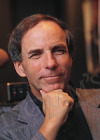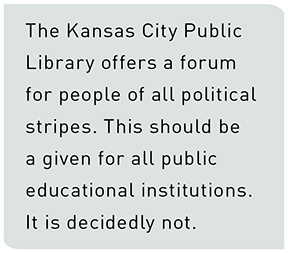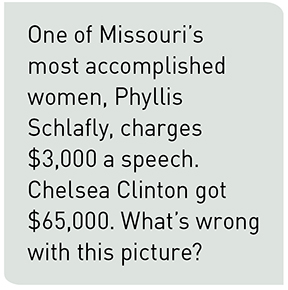HOME | ABOUT US | MEDIA KIT | CONTACT US | INQUIRE
HOME | ABOUT US | MEDIA KIT | CONTACT US | INQUIRE
 */?>
*/?>
Where have you gone, dear old Walt Bodine
Our region turns its lonely eyes to you …
What’s that you say there, KCUR?
Walt Bodine has left and gone away,
Hey, hey, hey … Hey, hey, hey.
A few weeks back, I did a presentation for my most recent book, Scarlet Letters, at the splendid Downtown branch of the Kansas City Public Library.
In that C-SPAN sent a camera crew to record the event for its Book-TV series, the library and I promoted the event heavily. I needed real people there to laugh at my jokes.
This was the ninth book I wrote for Book-TV, and my third appearance at the library. As library director Crosby Kemper III generously noted in his intro, my previous presentation set the record for most Internet hits for a library-hosted Book-TV event.
Kemper made another point that he should not have had to make, namely, that the Kansas City Public Library offers a forum for people of all political stripes. This should be a given for all public educational institutions. It is decidedly not.

Courtney Lewis, the library’s upbeat media person, sent me a chipper e-mail two weeks before my appearance, “KCUR’s Up to Date has indicated interest for an appearance on July 30th in their studio.” Up to Date is the local-affairs program on KCUR, the UMKC-based station that is part of the National Public Radio network. When I saw Lewis’ e-mail, I thought to myself, “Good luck with that, Courtney.”
Sure enough, Lewis e-mailed me five days later with the news that “KCUR’s Up to Date will not be able to have you on to promote the library event, as they are booked solid. Sorry about that.”
On July 30, Up to Date was “booked solid” with a rash of hot topics, among them: university profs dissing Sam Brownback; Emanuel Cleaver gushing about his African junket with Barack Obama; and a feature on an “interstellar psychedelic rock ’n’ roll” band called The Phillistines. If Lewis had asked to schedule me for July 30, 2016, the show would still have been “booked solid.”
KCUR’s collective mindset is something of a norm in the public-culture business. Our taxpayer-funded mandarins don’t cotton to taxpayers like you (if you have read this far) and me.
In early 2010, I tried to schedule an appearance on KCUR for a book I wrote on the then-recent Wall Street collapse. I made my pitch five weeks before the date in question. A week later, not having heard anything, I re-sent the email.
“I was swamped,” the producer apologized. He promised to check and get back to me. Still in the dark three weeks later, I e-mailed the producer again. “We’ve decided to take a pass,” the producer responded, “but wish you luck with your appearance at the library.”
I responded, a bit snippily, “If you could, kindly remind the decision-makers that KCUR is a publicly-funded enterprise and that, as such, it would seem to have some obligation to at least occasionally humor those citizens who keep its bi-state market solidly red. Might help with the fund-raising too.”
The producer fired back, “We book guests of all political persuasions, and our reasons for not booking one guest or another doesn’t (sic) have anything to do with a guest’s political leanings.”
As Stephen Jimenez could verify, this is nonsense. Two years ago, Jimenez, a gay activist, came to town to promote his controversial and stunningly honest new book, The Book of Matt. He did years of research on the iconic death of Matthew Shepard in Wyoming and upended the prevailing narrative that Shepard was killed because he was gay.
“Matthew was part of an interstate meth-trafficking circle,” wrote Jimenez. Russell McKinney was “first his friend and occasional sex partner, then his competitor and adversary, and finally his killer.”
I met Jimenez after his presentation at the Unity Temple, arranged by the open-minded folks at Rainy Day Books. He was still stunned that KCUR would not have him on the air, especially given that his publisher was from Kansas City.

I wasn’t stunned at all. This was not a story that the tender buds in KCUR’s carefully cultivated audience would have wanted to hear.
Our public institutions, alas, have become hothouses of oppressive uniformity.
As UMKC recently discovered, the ideas nurtured within often wilt spectacularly when exposed to the fresh air without. When the university was about to launch its Starr’s Women’s Hall of Fame, who better to help launch it, thought organizers, than Hillary Clinton? In the progressive bubble of Midtown Kansas City, Clinton made sense.
Outside of that bubble, she made no sense at all. If Clay Chastain were to head the Republican national ticket, he would beat Hillary handily in Kansas and Missouri. Only Hillary’s price tag spared us a royal visit. For what she was asking, organizers could have bought a 5-bedroom, 4-bath house in this market and given it to the poor.
Not having $275,000 in their petty cash drawer, they settled on Mini-Me, Chelsea Clinton, the most inconsequentially famous young woman since Paris Hilton hung up her Jimmy Choos. Chelsea wanted—and got—$65,000 for a contracted 10-minute speech. You read that right: Ten minutes.
Given the monolithic campus zeitgeist, planners of this event had no idea how absurd the deal would sound once The Washington Post got wind of it. The Post reported that university officials were “persistent” in pursuing Chelsea as a speaker, even at $65,000, even though she “had never before accepted a speaking invitation.”
The most accomplished Missouri woman since Nelly Don, Phyllis Schlafly, charges $3,000 a speech. No one thought to ask her.
Maybe I sentimentalize the past, but it seems there was a time not too long ago when people ventured outside the bubble. The late Walt Bodine and I did not agree on much, but he had me on his KCUR show a dozen times for a dozen different reasons, and we stayed friends to the end.
What do you say to that?